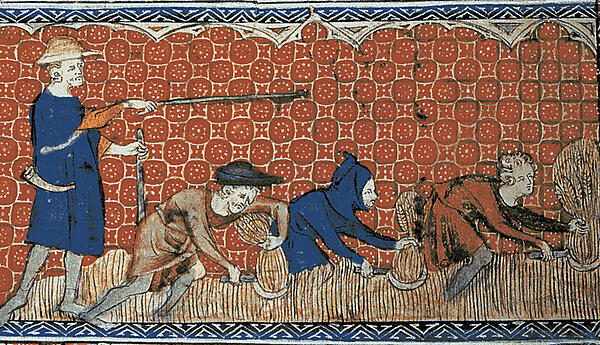The Poor Peasant
Very few people in Medieval England were concerned about the poor. Under the Feudal System the lives of peasants were very difficult, and the failure of crops or death of a family member could leave them facing starvation.
The only aid available to the peasants came from the churches or monasteries who gave alms to the poor, including widows and orphans.

Almsgiving was a crucial aspect of Christianity during this time. Monastic houses made it their duty to provide charity to those in need and would provide their service from a special building known as an almonry. Those who were travelling or required medical attention would also be offered places in special guest houses and infirmaries.
In total, Medieval England contained around 1,000 hospitals, which were usually used by those unable to afford treatment at their own homes. Unfortunately, none of these facilities contained professional doctors and none were equipped to treat disease.
There were multiple types of hospital, including leper houses, almshouses and institutions for the sick poor. However, all were tied in some way to a monastery and promoted spiritual health over physical health.
See also: The Lives of Medieval Peasants
MLA Citation/Reference
"The Poor Peasant". HistoryLearning.com. 2026. Web.
